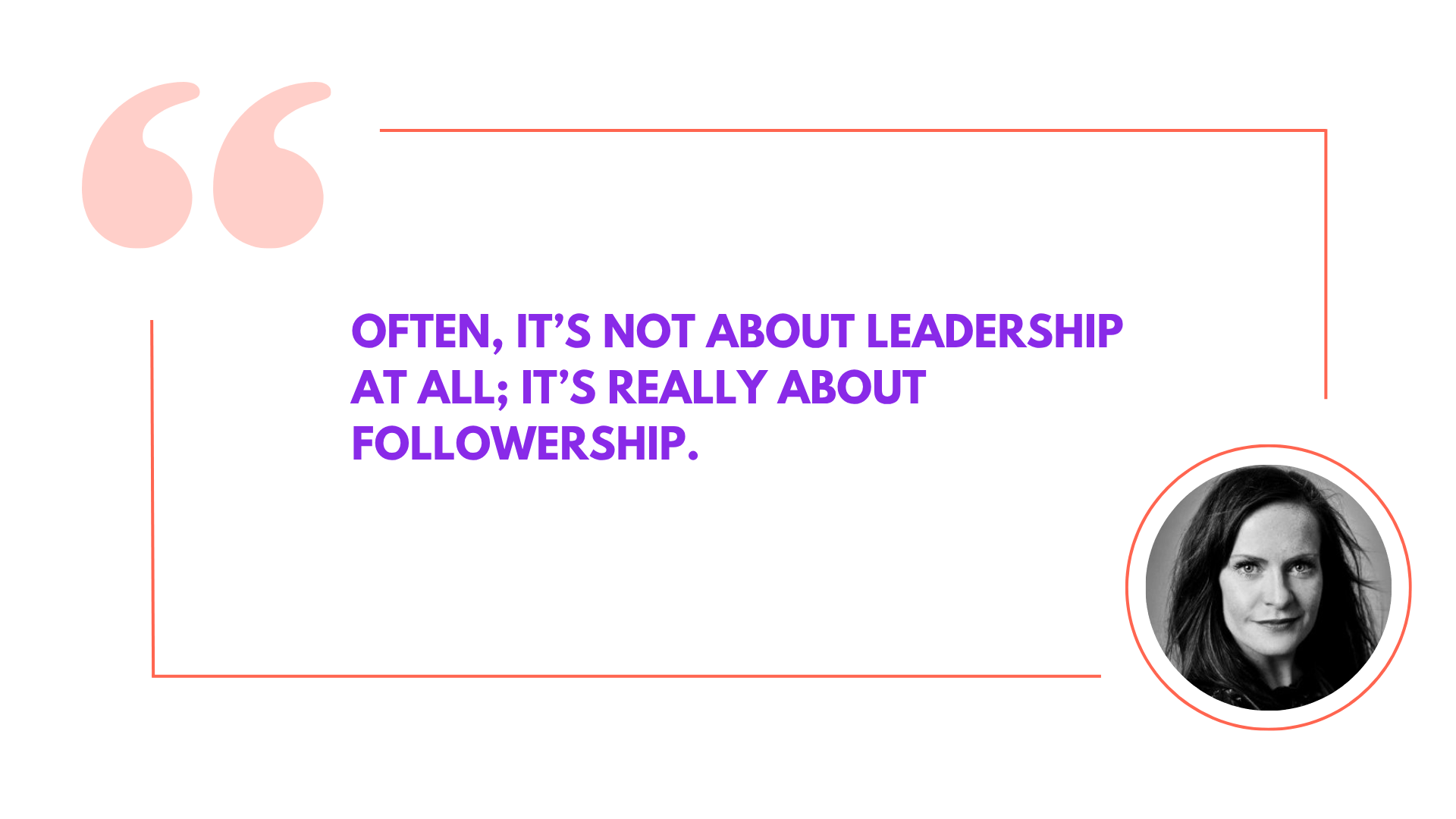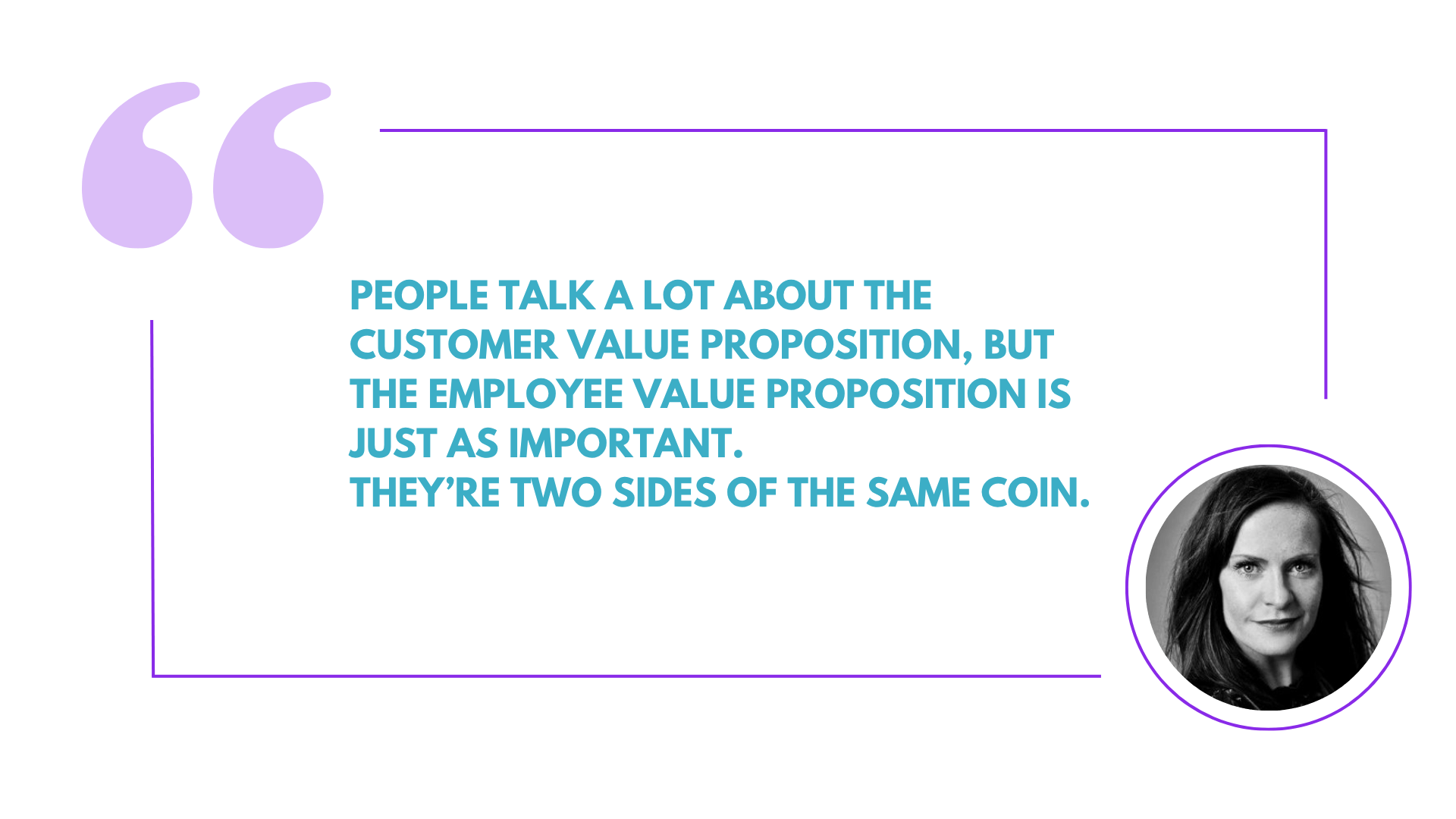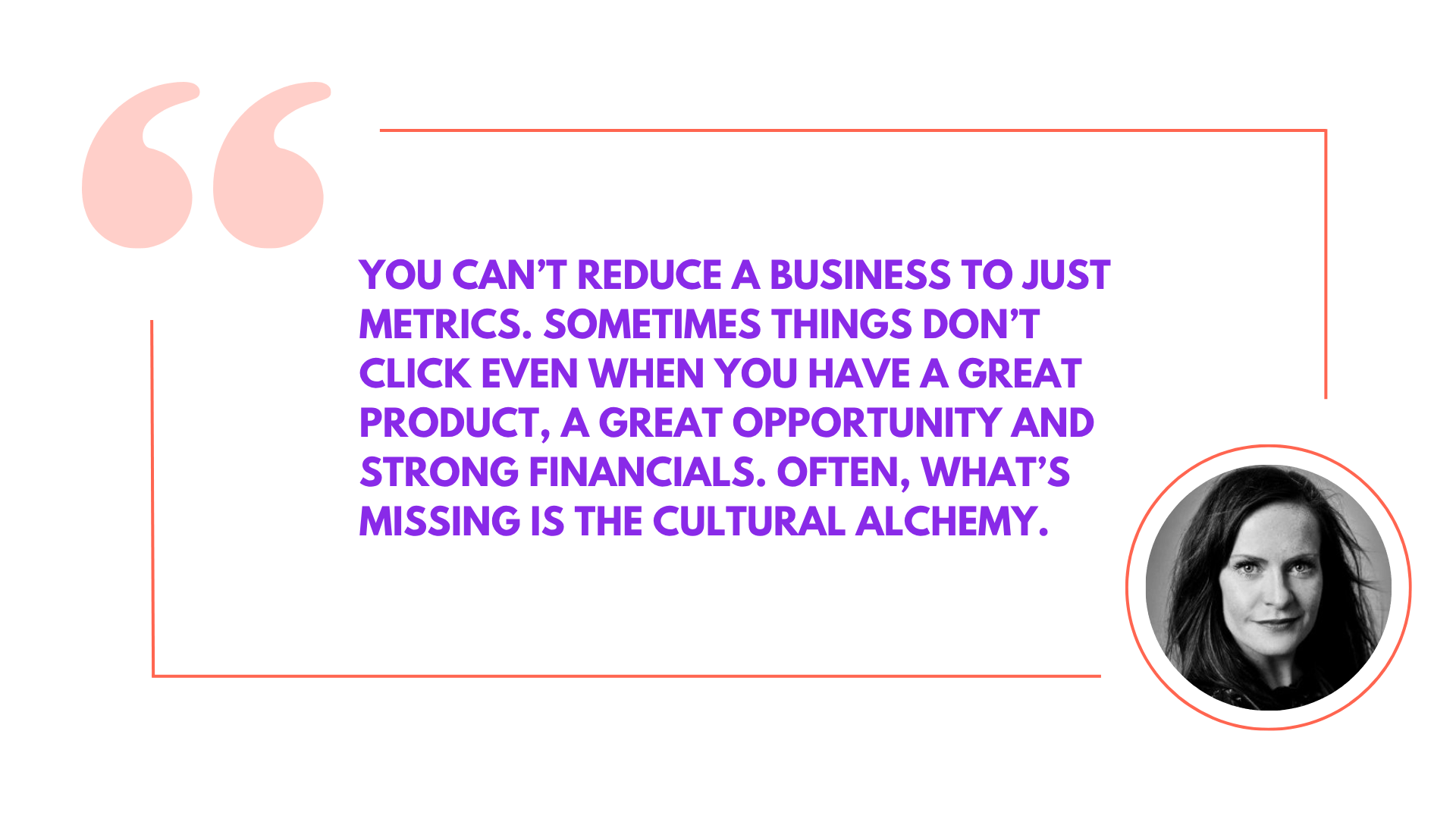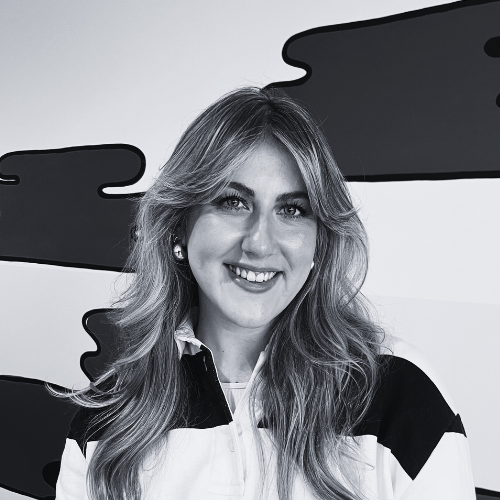Building Businesses That Matter: Lessons from In This Together Co-Founder Maggie Buggie
29 May, 20258-9 minsWhen you meet Maggie Buggie, one thing becomes immediately clear: she builds great businesse...

When you meet Maggie Buggie, one thing becomes immediately clear: she builds great businesses. Businesses that are high-growth, high-impact, and harness the power of emerging technology to solve real-world problems.
Over the course of her career, Maggie has scaled companies across every stage and structure imaginable, from scrappy startups and ambitious scaleups to $100 billion market cap giants. She’s done it all: led billion-dollar business units, advised boards, worked hands-on as an operator, and now, co-founded In This Together, an investment fund with a difference. Focused on deep tech startups originating in Europe and with an ambition for US expansion, the fund follows tier-one investors and brings something few others do: an empathetic, operator-led approach to post-investment support.
Maggie’s story is about more than scaling businesses. It’s about designing meaningful organisations. Ones that are not only efficient and profitable, but culturally resilient, values-driven and wired for real human connection. At the heart of her work, there’s one central question: How can we better leverage technology to serve customers, citizens and the planet?
In our conversation, Maggie shares the behind-the-scenes of building In This Together and her thoughts on leadership, culture as a competitive advantage, and why the best companies focus just as much on the employee experience as the customer one. Whether you’re building a business from scratch or reimagining one that’s already flying, Maggie’s insights will leave you inspired to lead with purpose and build with clarity.
Hi Maggie! What inspired you to launch In This Together? Did you see a specific gap in the market you wanted to fill?
It all really started with a belief in the power of European tech to solve real-world problems. Europe, as a geographical region, is incredibly diverse – culturally, economically and socially. That diversity creates a rich environment for innovation that’s rooted in human context. When I look back at the most successful products I’ve worked on, the one thing they all had in common was that they were built to solve a real-world problem. The technology, while important, was ultimately secondary to the impact.
My co-founders and I saw a unique opportunity to back deep tech companies coming out of Europe that were not only building great technology but solving meaningful problems and had ambitions to expand into the US. But there was a gap. These companies often raised capital from top-tier funds, but those funds rarely cover the entire round. There’s almost always a 25-50% gap that needs to be filled, and that’s where we come in.
In This Together was built to follow those tier-one investors – funds like Episode 1, Connect, Kindred, General Catalyst and Bessemer – and offer strategic, post-investment support. We’re not competing with capital, leading rounds or replacing institutional due diligence; we’re complementing it. That’s a win-win for our portfolio companies and for the angels and family offices who form part of our fund.
What really sets us apart is what happens after the cheque. Founders today don’t just need money; they need operators who can help them grow. Through our own founder networks and scaling expertise, we give them hands-on support across go-to-market, hiring, efficiency, and more. Especially now, when efficiency and path to profitability are front of mind, that kind of support is critical – and it’s often missing from the traditional VC model.

Would you say that’s what sets In This Together apart: the networks you bring, your empathy with founders, and your support throughout the entire process?
It’s really a combination of all of those things, but what makes us unique is the breadth of experience across our founding team. Between the three of us, we bring a complete jigsaw of perspectives.
Paul Fifield, one of my co-founders, is a multiple-exited founder and former CRO. He brings a level of authenticity and empathy that only comes from having been in the revenue trenches, scaling and selling businesses. Jyoti Patel, my other co-founder, has a similar story. She’s been there, succeeded and navigated the inevitable challenges along the way.
My own background is more typically corporate. I bring a different lens from leading large enterprise units, managing global teams, and building relationships with major customers and partners. That gives us access to a network that understands the scale our portfolio companies are aiming for, and I can help them navigate those relationships.
So, we’re not just ‘finance people’, and we’re not just ‘startup people’ either. We’ve lived the scaling journeys ourselves, and we understand what maturity looks like at the other end. That lived experience – having been, and continuing to be, operators ourselves –makes us highly empathetic, more realistic, and better equipped to support our portfolio companies through the unpredictable and often messy realities of growth.
That experience must be such a huge asset. Founders are dealing with so much uncertainty that having people who’ve walked that path before must be incredibly valuable.
Absolutely! It’s one thing to give advice, but it’s another to have actually lived through those cycles. I’ve led businesses during periods of restructuring, worked through the aftermath of the financial crisis, and run major transformation programs in global corporates. I’ve also had the opportunity to lead multiple markets, including leading North America multiple times, and raising capital when I was COO at Normative, so I understand both the investor lens and the founder reality. That gives a unique level of understanding and therefore a different ability to coach, meet our startups where they are, and offer meaningful advice.
One of the things I’ve learnt is that you can’t reduce a business to just metrics. Sometimes things don’t click even when you have a great product, a great opportunity and strong financials. Often, what’s missing is the cultural alchemy. That spark in the team, the shared energy and purpose, is what drives real success. It’s something we’re really proud of and value deeply at In This Together.
We’re still early stage, but the feedback from our portfolio companies has been consistent – they value that we meet them where they are, that we listen with intent, and that we offer genuine support and understanding of what it takes to grow a business.

You’re very intentional about the companies you work with. Can you explain why?
One of the things that makes our model attractive, especially to our predominantly US-based angel community, is that we only work with startups that already have a tier one investor in place. It’s a core qualification criteria, and a conviction that the company and the problem they’re solving have the potential to 100x in value. There’s a scale of ambition we look for, and it’s embedded in both the founders and our network. That selectivity is important because we want to make sure we can genuinely add value.
Privacy is also a really key part of how we operate. Money is a deeply personal thing, and discretion is part of what makes our network so appealing. Many of our angels are in highly regulated industries or simply don’t want their investments publicised, which we completely understand and respect.
Alongside the financial opportunity, our angels genuinely care about helping founders make their mark and building the European tech ecosystem. They want to support companies solving real-world problems and help turn Europe into a leading tech hub, akin to the historical brand legacy of Silicon Valley.
Obviously, you have a ton of experience working in many different roles, businesses and countries. Do you think there are specific leadership traits that are critical to success?
Having worked all over the world, what that’s shown me is that, despite how divided the world can sometimes feel, there’s far more that unites us than divides us. That’s something I’ve always believed and now I have over 20 years of global experience to back it up.
When I put that in the context of a leadership perspective, I’ve learned a lot – often from the mistakes I’ve made along the way – but there are a few core principles that I keep coming back to. First, in every role I’ve had, I’ve always focused on both the customer and employee experience. People talk a lot about the customer value proposition, but the employee value proposition is just as important. They’re two sides of the same coin. If you want to build a great business, you need to focus on how people work and how the internal systems support that.
Secondly, a term I’ve coined is ‘keep the main thing, the main thing.’ When everything becomes a priority, nothing’s actually a priority. I always map out the top three things that matter most right now. Once we execute those well, only then do we earn the right to look at the next set. If you’ve got 50 priorities, really, you’ve got none. Do the work to narrow it down, then iterate and move on to the next phase.
Third is understanding that culture is a competitive advantage. Culture is created through behaviours, processes, KPIs, what you reward, how you manage performance, what you deem permissible, and how you handle missteps. These are the reasons why people emotionally, intellectually, or financially commit to a company. A true belief in the mission and values is what distinguishes exceptional companies and exceptional teams from average ones.
And finally, on a personal level – whether that’s in my operator capacity, board capacity, or now my co-founder capacity – I always come back to one question: Why would anyone choose to be led by me?
It’s easy to get caught up in your own narrative, especially when the conversation is around leadership. That question keeps the focus where it should be – on others. Because often, it’s not about leadership at all; it’s really about followership. When I look back on my career, it’s the times when I’ve focused on making the people around me successful - not performatively, but genuinely - that’s when I’ve been the most successful and fulfilled in return.

I think that really translates. When people can authentically be themselves and connect on a human level, culture naturally thrives. It puts people at ease and makes success feel much more achievable.
Totally. What you’re describing there is the importance of flat hierarchies. People can easily forget what hierarchies are for. It’s just an artificial construct, and organisations are systems that, when designed well and the operating system works well, help orchestrate resources like people, capital and technology to deliver on outcomes.
Hierarchy should only really kick in when key decisions need to be made, whether that’s during a crisis, a big opportunity or when clarity is required. When hierarchy becomes about ego or status, that’s when culture becomes toxic.
That’s why I’m always repeating ‘keep the main thing, the main thing.’ Focus on culture as a competitive advantage, and make sure everyone understands why the operating model and hierarchy exist. They should support the mission, the values, and the quarterly outcomes, not distract from them.
And internally, we need to continuously educate people at every level on how their role connects to the broader purpose and what good performance really looks like. It’s about creating shared understanding, not top-down control.
What a great reminder that great businesses are built with purpose, clarity, and empathy. Thanks for your amazing insights, Maggie! We can’t wait to follow your journey with In This Together.
To get more insights from Maggie, follow her on LinkedIn.
To learn more about In This Together, follow their journey here.
To hear more insights from founders and leaders on the tech scene, make sure you’re subscribed to The Stack.
And stay tuned for more of Maggie’s insights in our upcoming The Rise of Women in Tech report.
The bottom line
Hiring contractors shouldn’t create more work. With Propel, you get flexible, on-demand talent while we manage the admin behind the scenes so you can stay focused on what you do best while we take care of the rest – onboarding, contracts, compliance, and payments.
Your contractors get paid on time. You get one invoice.
Curious how we can help your team scale?



